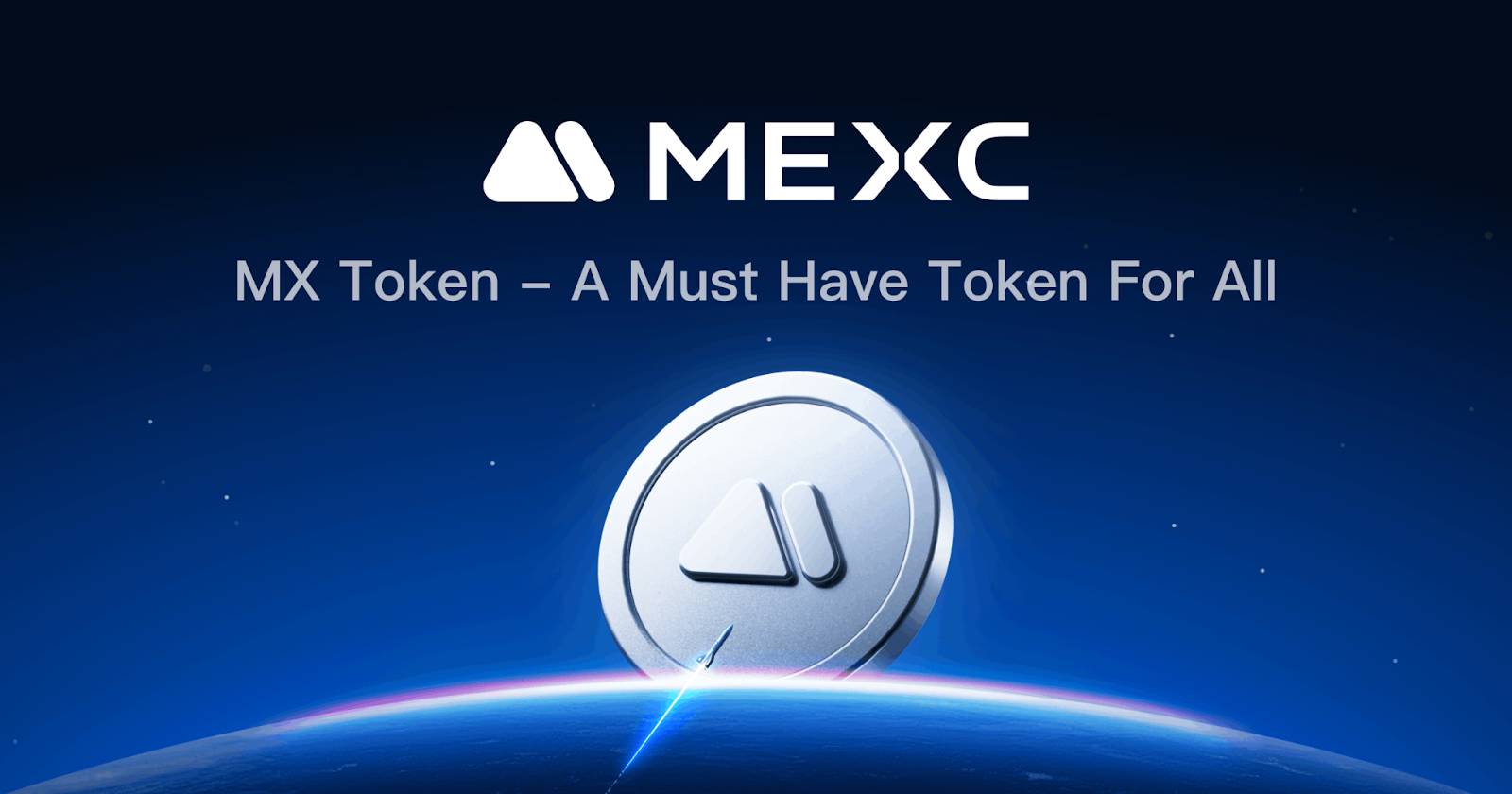
7 minute read
Does MEXC Report to HMRC? What You Need to Know
from MEXC
by Exness_India
No, as of now, MEXC does not directly report user data to HMRC (Her Majesty’s Revenue and Customs). However, that doesn’t mean your activity on MEXC is invisible to UK tax authorities. If you're a UK-based trader or investor using MEXC, it's essential to understand how your crypto activities may still fall under HMRC's radar — even if MEXC isn’t proactively sharing your data.
This article breaks down everything you need to know: the current reporting obligations, the risks of non-compliance, how HMRC tracks crypto activity, and what you should be doing to stay compliant.

✅ Trade with MEXC now: Open An Account 👈
What Is MEXC?
MEXC is a centralized cryptocurrency exchange that offers spot, margin, futures, and staking services. It's known for listing a wide variety of altcoins and offering access to low-cap tokens early. Founded in 2018, MEXC is headquartered in Seychelles and is not a UK-based platform. That’s an important detail when it comes to understanding tax reporting obligations.
Because MEXC does not have a physical or legal presence in the UK, it’s not directly regulated by the UK’s Financial Conduct Authority (FCA), and therefore, not under a direct obligation to report user data to HMRC under domestic UK regulations.
So, Does MEXC Report to HMRC?
Currently, MEXC does not report to HMRC. Unlike UK-based exchanges like Revolut or Coinbase (which have a presence or legal operation within the UK), MEXC operates offshore.
HMRC has agreements with certain exchanges and institutions that are based in or operate within its jurisdiction. These companies may be compelled to report user activity — such as crypto transactions, trade volumes, and account balances — upon request or via regular disclosures. However, MEXC is not among these exchanges (as of now).
But don’t take that to mean your activity is anonymous or off the grid. HMRC has several tools and international agreements that may still expose your MEXC trading activities.
How HMRC Tracks Overseas Crypto Activity
Even if MEXC doesn’t voluntarily report your activity, HMRC can still access your crypto data through various mechanisms:
1. Data Requests and Court Orders
HMRC can issue data requests or court orders to individuals if they suspect tax evasion. If your crypto activity on MEXC raises red flags — like large transfers from foreign exchanges to UK banks — HMRC may investigate and require you to provide trading records.
2. The Common Reporting Standard (CRS)
The UK is a participant in the OECD’s Common Reporting Standard (CRS), an information-sharing agreement between over 100 countries. If you fund your MEXC account from a UK-based bank or withdraw profits back into UK accounts, those transfers might be flagged and reported under CRS protocols.
3. Blockchain Analysis
HMRC employs blockchain analytics tools (like Chainalysis) to track wallets and transactions. Even though crypto wallets don’t use real names, transactions are publicly recorded. If HMRC can connect your identity to a wallet that interacts with MEXC, they can build a case based on your blockchain activity.
4. Voluntary Disclosures by Other Exchanges
If you move crypto between MEXC and another exchange that does report to HMRC (like Binance UK or Coinbase), your MEXC activity could be indirectly exposed. Once you transfer assets from MEXC to a regulated platform, it becomes easier for authorities to piece together the full picture.
What Are the Tax Implications for UK Users?
Whether or not MEXC reports to HMRC doesn’t change your legal obligation to pay taxes on your crypto income. HMRC treats cryptocurrencies like property, not currency. This means most crypto transactions are subject to Capital Gains Tax (CGT) or Income Tax, depending on the type of activity.
Here’s how your MEXC activity may be taxed:
1. Capital Gains Tax
If you sell, trade, or convert crypto and make a profit, you’re liable for CGT. This applies to:
Selling tokens for GBP
Trading one token for another (e.g., ETH to MATIC)
Using crypto to purchase goods or services
Gifting crypto (unless to a spouse)
Each trade you make on MEXC could trigger a taxable event, and you're required to report it, even if the platform doesn’t do so on your behalf.

✅ Trade with MEXC now: Open An Account 👈
2. Income Tax
If you earn crypto through activities such as:
Airdrops
Staking
Yield farming
Referral rewards
…then it may be considered income and subject to Income Tax instead.
3. Allowances
Every UK individual receives a Capital Gains Tax allowance (though it has decreased significantly in recent years). For the 2025/26 tax year, it’s £3,000. Anything over this is subject to CGT at rates of 10% or 20%, depending on your income level.
Should You Report MEXC Crypto Trades?
Yes. If you're a UK resident, you're legally required to report any crypto-related income or capital gains to HMRC — regardless of where the exchange is based.
The lack of automatic reporting by MEXC does not exempt you from your tax obligations. HMRC can and does investigate discrepancies between income, bank activity, and self-assessment tax returns.
Failure to report can result in:
Penalties
Interest on unpaid taxes
Full investigations or audits
Criminal charges in severe cases
So, even though MEXC isn’t currently tipping off HMRC, the safest and most compliant approach is to voluntarily report all taxable crypto activity.
How to Stay Compliant If You Use MEXC
Here are some practical steps to ensure you meet your tax obligations:
1. Keep Detailed Records
MEXC provides downloadable trading history. Make sure you regularly export:
Deposit/withdrawal logs
Trade history (including pair, price, and timestamp)
Staking rewards or airdrop logs
Use crypto tax software like Koinly, CoinTracker, or Accointing — they support MEXC API integration to help automate your tax calculations.
2. File a Self-Assessment Tax Return
If your crypto gains exceed the CGT allowance, or if you earned crypto income, you’ll need to file a self-assessment tax return with HMRC. You can do this yourself or work with a crypto-savvy accountant.
3. Report Even If There’s No Profit
Even if you didn’t make a profit (or ended up in a loss), it’s often still beneficial to report — especially to log capital losses, which can be used to offset future gains.
4. Plan for the Future
Consider your tax position before making trades. For example, selling a token in one tax year vs. another can make a big difference in your liability. Tax planning is especially helpful if you're staking, yield farming, or holding volatile assets.
Is It Risky to Use MEXC from the UK?
Using MEXC is not illegal in the UK. However, it does carry some risks — particularly around regulation, compliance, and data protection:
Lack of FCA oversight: You’re using a platform that is not regulated by UK authorities.
Limited legal recourse: If MEXC is hacked, suspends withdrawals, or freezes your account, your legal options may be limited.
No FSCS protection: Your assets are not protected by the UK’s Financial Services Compensation Scheme.
That said, many UK users continue to use MEXC for its altcoin selection, low fees, and broad access to the global market. Just remember: the more you trade on offshore exchanges, the more proactive you need to be about recordkeeping and tax compliance.
Final Thoughts
To summarize: No, MEXC does not currently report to HMRC. But that doesn’t mean HMRC can’t find out about your crypto activity. Through data-sharing agreements, blockchain analysis, and investigations, your offshore trades can still come under scrutiny.
If you’re a UK resident trading on MEXC, the best strategy is simple: track everything, report honestly, and stay ahead of the rules. The crypto tax landscape is evolving rapidly, and the penalties for getting it wrong can be severe.
HMRC doesn't care where you trade — it only cares that you declare and pay what you owe.
✅ Trade with MEXC now: Open An Account 👈
Read more:








